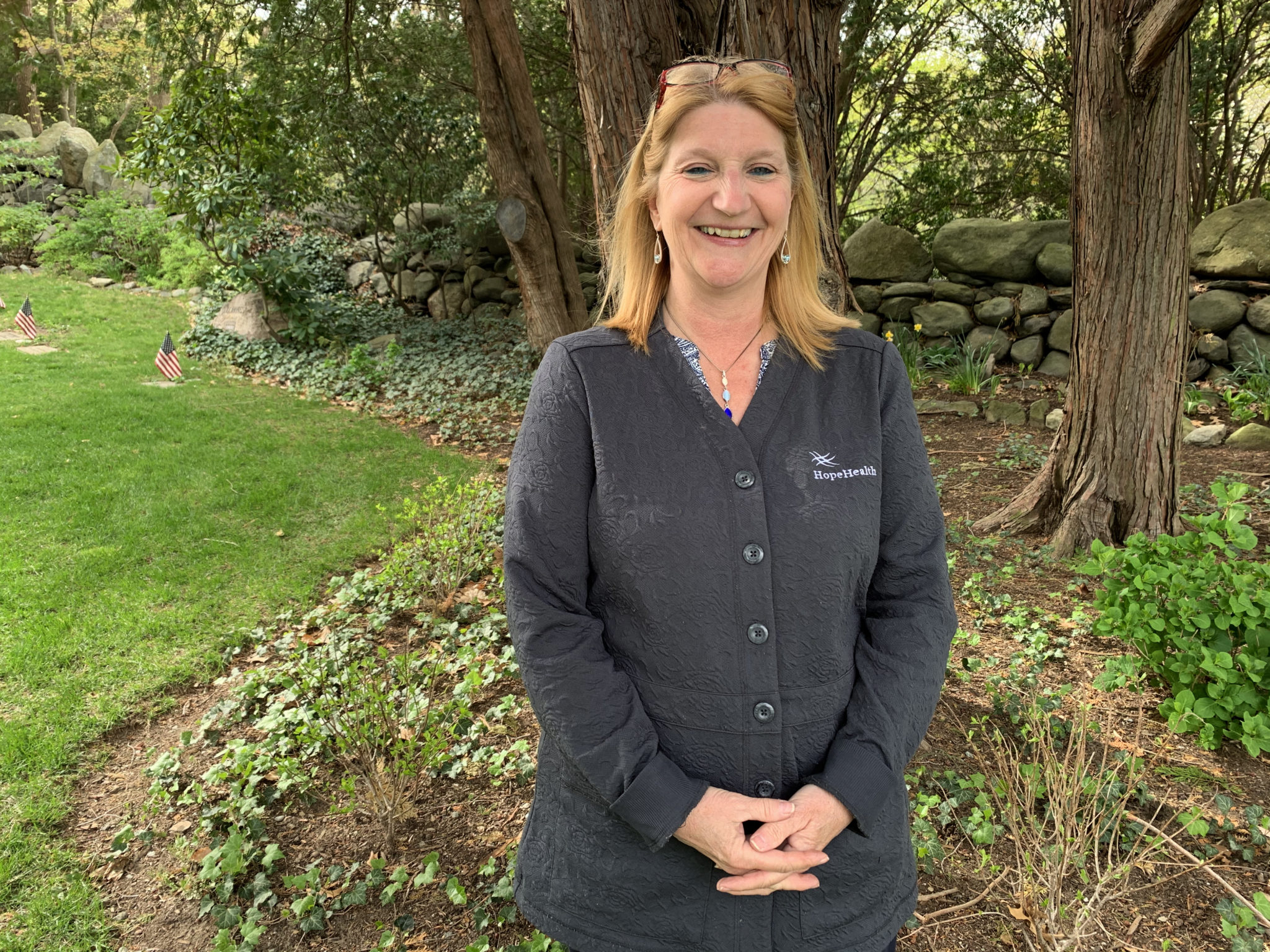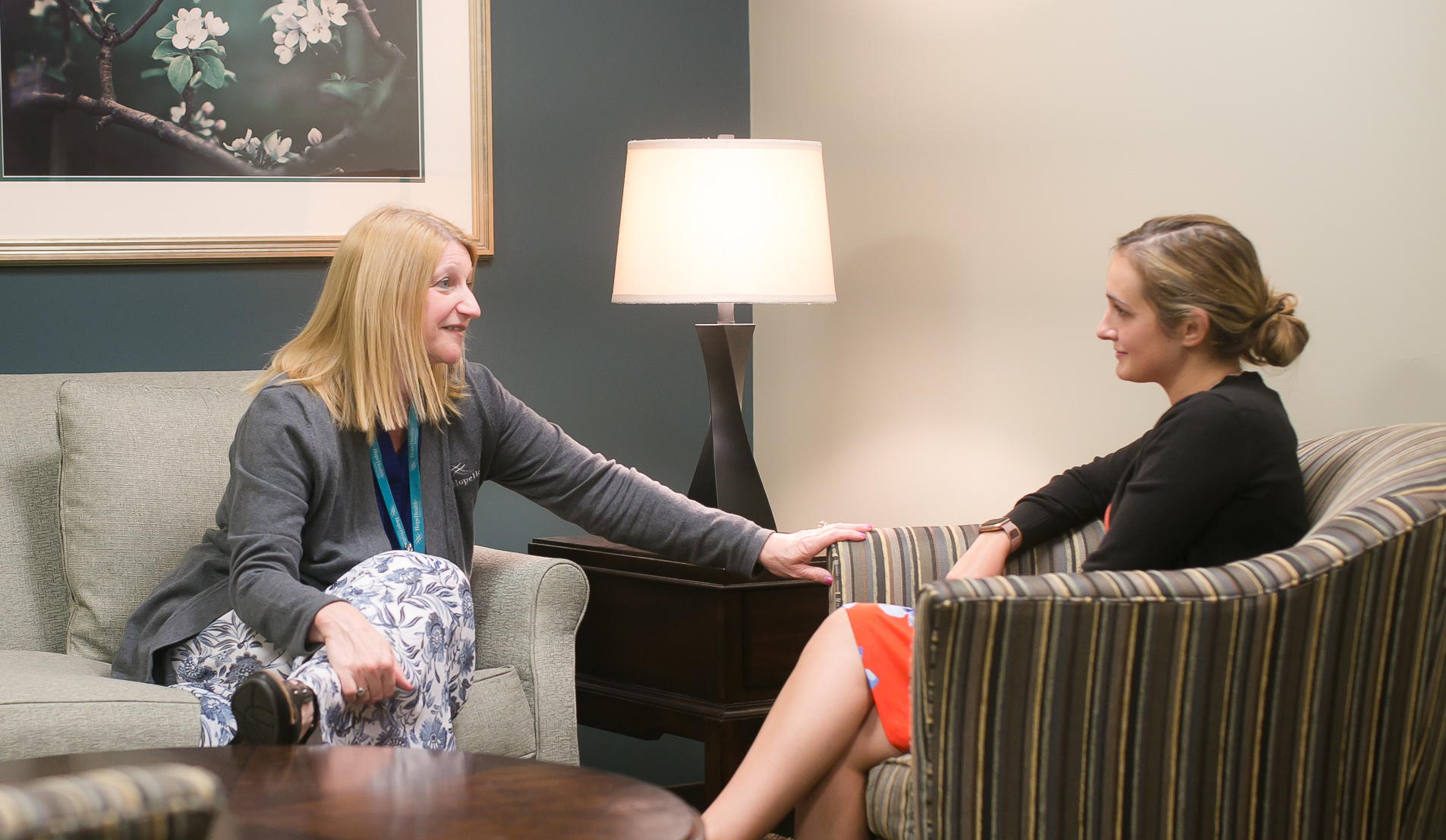When a parent dies, your life is transformed. You might be asking yourself how will you get through the next Mother’s Day or Father’s Day? How will you walk down the aisle? How will you celebrate your child’s high school graduation? How will you get everyone together at Thanksgiving now?
“All these happy events become bittersweet,” says Diane Lambert, MSW, HopeHealth grief counselor. She provides counseling in group and one-on-one settings to people of all ages who have experienced the loss of a parent.
“Days like Mother’s Day and Father’s Day put a lot of pressure on people,” Diane says. “Sometimes the anticipation of that day is harder than the day itself. It’s always important to have a plan. What I suggest, is to do whatever you think is helpful to you.”
Regardless of the quality of the relationship you had with them, the loss of one or both parents represents a milestone in your adult life. You can’t ignore your own mortality. You can’t go back and undo things. Diane has advice to help those who may find themselves feeling emotionally adrift now that one or both parents is no longer a phone call away.

1. Give yourself time to adjust to a new reality
The first few months of grief are often called a grief fog. You just can’t grasp the fact that a loved one is gone. You do whatever you need to do robotically. You take care of things you need to do but your mind really isn’t there.
Even though your brain knows your mother or father is gone, your heart may take longer to get the message.
“People say to me, ‘I know they’ve died. I went to the funeral, but sometimes I feel like they’re going to walk through the door,’” Diane says. “I tell them I understand. Our hearts and our heads are very, very different.”
It’s OK to have these feelings as long as you recognize it’s part of the healing process, Diane says.
2. Take the pressure off
Having a plan for a holiday or special occasion will help you prepare for the feelings you may encounter during the day. And sometimes, Diane says, doing nothing is a plan.
“I have had some people tell me ‘I’m going to just forget the day is going to happen since any day for me is Father’s Day because my dad and I talked every day,’” Diane says.
Choosing to take a pass on the holiday is one way to cope but others embrace the holiday with a meaningful activity to honor a lost parent. Diane recalls one client who planned to write a greeting card to place on her mother’s headstone on Mother’s Day. “Something like that can be very meaningful,” Diane says.
If you are looking for a way to remember your loved one, we invite you to attend our Summer Evening of Hope & Remembrance virtual memorial event this Thursday, June 24 at 6 p.m. Click here to register for the free event.
3. Focus on the remaining parent
“When one parent dies, we focus on the other parent and that’s what so many of the people I work with have been able to do and that helps them in their grief,” Diane says. “They take their grief and they honor their mom or dad by helping the other parent.”
When both parents are gone, it’s normal to feel a different kind of sadness than you felt when the first parent died. Diane says she often hears many adult children refer to themselves as orphans when their last parent dies.
Perhaps in time, Diane says, you will find there are other family members, friends or neighbors you can help. The emotional energy you had to express love for and honor your parents can be redirected to honor others or support good causes in your community, Diane says. This often helps with your grief journey.

4. Reserve space to honor a lost parent
When a life milestone comes up, it can be helpful to find ways to remember your loved one in that moment. Diane recalls a bride who put her father’s tie tack inside her wedding bouquet. “There are so many different ways,” Diane says.
A memory table at the wedding reception can hold photos and mementos of a missing parent. It can also hold the boutonniere or a corsage the parent who passed away could have been wearing if they were still alive. These kinds of thoughtful actions make their presence still felt.
Traditions can be a source of comfort too, especially those involving food. Knowing you will make your mother’s recipe for potato salad to place on the table at your annual Fourth of July picnic can help you look forward to the holiday celebration.
5. Remember that others take their cue from you
You might feel sad that no one around you is talking about your mom or your dad now that they are gone. Others may not ask about your lost parent without you offering the opportunity to bring them up.
“They’re looking to you,” Diane says. “Start the conversation and then other people will follow.”
Children especially need to be given the opportunity to open up but may believe they can’t because it will hurt their other parent.
“Kids may feel like they want to talk about their dad but mom seems sad all the time,” says Diane.
Reading books together can help. For younger children, Diane recommends “The Invisible String” by Patrice Karst. It’s the story of a mom telling her two children how a string they cannot see connects them to their uncle in heaven.

6. Take care of you
“Almost everybody I’ve worked with, whether individually or in a group setting, says something like, ‘I feel like I have to carry on now,’” Diane says.
But don’t force yourself to do something you’re not ready for yet. Practicing self-care is important.
You may feel a responsibility to continue traditions for the sake of the family, especially if a parent was the glue that kept siblings together. But a death in the family may allow room for new traditions to start as well, Diane says. Maybe traveling a long distance for a holiday gathering might be too stressful for you this year. Sometimes it might be better to back off, slow down and conserve your energy to heal yourself.
Feeling gratitude for the time you did have with your parent can help.
“Some people say, ‘I’m so fortunate to have had my dad for so long but it does not mean I’m not going to miss him,’” Diane says.
What is more difficult? Losing a parent when you had a close relationship or when it was strained?
“There is no easy answer,” says Diane. She has counseled individuals who grieved relationships they never had with their parents because of family conflicts. Having compassion for yourself and for the things you were unable to change in the past can help you focus on healing.
“Something we tell everybody,” Diane says, is everyone grieves differently and each individual has to have their own grief journey.”
One hundred percent of HopeHealth grief support services offered throughout Rhode Island and Massachusetts are funded by philanthropic donations. Learn more about how you can support the Center for Hope & Healing help others on a path of hope and renewal.

